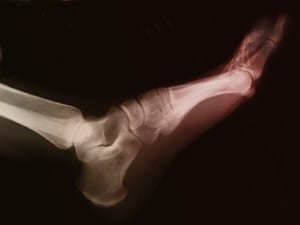
THURSDAY, Oct. 11, 2018 (HealthDay News) — Although many people suffering from painful gout flare-ups point to diet as the culprit, new research suggests DNA plays a much bigger role.
The findings challenge the long-held belief that diet is the major factor in gout, a joint disease that causes extreme pain and swelling. Gout is caused by hyperuricemia — high blood levels of uric acid, which forms crystals that collect around the joints.
In the study, New Zealand researchers analyzed genetic and diet data from nearly 17,000 American men and women of European ancestry.
The investigators found that diet was much less important than the individual patient’s genes in deciding whether or not they would develop hyperuricemia.
The findings “are important in showing the relative contributions of overall diet and inherited genetic factors” in gout, wrote a team led by Dr. Tony Merriman of the University of Otago.
In a related editorial, rheumatologist Dr. Ed Roddy, of Keele University in the United Kingdom, said the findings have important psychological implications for patients.
That’s because people with gout often face stigma due to the misconception that gout is a “self-inflicted” condition, caused by unhealthy lifestyle habits. That, in turn, can make some patients reluctant to seek medical help.
But the new research “provides important evidence that much of patients’ preponderance to hyperuricemia and gout is [genetic and] non-modifiable, countering these harmful but well-established views and practices,” Roddy said.
For centuries, diet was considered the main risk factor for gout, and recent studies suggest that certain foods such as meat, shellfish, alcohol and sugary soft drinks are associated with a higher risk of gout, while other foods such as fruit, vegetables, low-fat dairy products and coffee may protect against gout.
But other studies have also shown that genetics plays an important role in gout.
Dr. Waseem Mir is a rheumatologist at Lenox Hill Hospital in New York City. The new findings are “consistent with what I see in clinical practice,” he said.
“There is a lot of misunderstanding amongst patients as to why they are getting gout attacks. Diet seems to play little role even in clinical practice,” he said.
“What we learn from this study is that it is a genetic problem and needs to be addressed with medication and not just diet in most cases,” Mir added.
The study was published online Oct. 11 in the BMJ.
More information
The U.S. National Institute of Arthritis and Musculoskeletal Diseases has more on gout.
